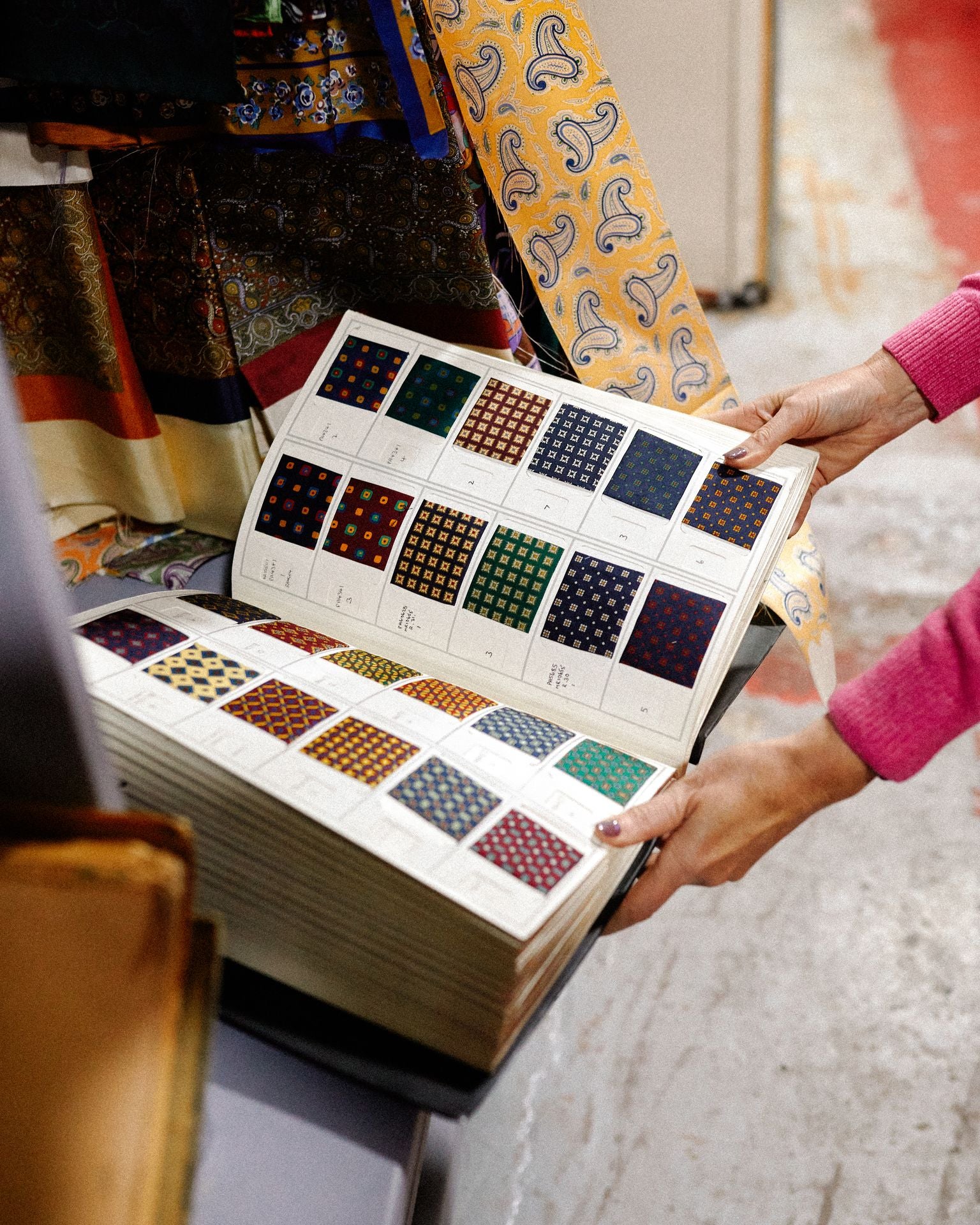Bauhaus by Soho Scarves

Imagine the scene: it’s 1919, and Germany is a nation emerging from the shadows of World War I.
Amidst this backdrop of upheaval and change, Walter Gropius founded the Bauhaus school in Weimar, sparking a revolution that would forever alter the landscape of art, architecture, and design. Gropius’s vision was audacious yet simple: to dissolve the barriers between art, craft, and design, fostering a world where collaboration reigns supreme.

Walter Gropius photographed at the school in 1926 by Lucia Moholy
This was a radical departure from the status quo, where art and craftsmanship had long been kept separate. The Bauhaus philosophy championed the idea that beauty and functionality are not mutually exclusive but rather complementary forces. In doing so, it rejected the past flourishes that had dominated design for centuries, advocating instead for clean lines, geometric shapes, and a focus on the intrinsic beauty of materials.
Soho Scarves celebrates this visionary approach with our Bauhaus-inspired collection. Paying tribute to the movement that redefined aesthetic norms, our range features six distinctive designs, each named after German cities pivotal to the Bauhaus narrative: Leipzig, Weimar, Dresden, Munich, Hamburg, and Berlin. These pieces are not just accessories; they are wearable pieces of history, blending artful design with practical elegance.

Leipzig and Weimar serve as tributes to the musical and cultural richness that defined these cities, with patterns and colours that speak to their historical significance and intellectual heritage. Dresden, with its bold, intricate designs, mirrors the city's artistic resilience, while Munich reflects a fusion of traditional charm and modern dynamism. The Hamburg design, with its cool tones and nautical colourway, captures the city's maritime spirit, and Berlin embodies the relentless energy and avant-garde pulse of the capital.
Crafted from the finest silk, each item in the collection – be it scarf, pocket square, or neckerchief – is a testament to the enduring appeal of Bauhaus principles. These are not merely fashion statements; they are nods to a philosophy where every line, colour, and form serves a purpose.

But Bauhaus was about more than just the merge of art and functionality; it was a hands-on experience unlike ever before. Students immersed themselves in workshops, getting acquainted with metal, wood, glass, and beyond. This hands-on approach was crucial, allowing them to understand and appreciate the essence of each material, and thereby, influence their creative decisions in a profound way.
The move to Dessau in 1925 marked a new chapter for Bauhaus, with the school’s premises themselves embodying Bauhaus ideals. Designed by Gropius, the Dessau campus was a physical embodiment of functionality blended with aesthetics. Its design was revolutionary, epitomising the minimalist yet functional ethos that Bauhaus stood for.

Yet, despite its ground-breaking contributions, the Bauhaus faced unimaginable odds. The rise of the Nazi regime and its disdain for modernist ideals led to the premature closure of the school in 1933. But rather than wiping out the movement, this action scattered its seeds globally, as Bauhaus pioneers spread their innovative ideas far and wide.
Today, the Bauhaus spirit lives on, its influence can be seen in every element of modern design. From the furniture we use to the homes we live in, the legacy of Bauhaus is unmistakable, a testament to its visionary ethos that design should be accessible, functional, and beautiful.




Our collection is a homage to this transformative movement, embodying the belief that true design transcends time and place. As you wrap yourself in a piece from our Bauhaus-inspired range or tuck it in your pocket, you’re not just embracing style; you’re embracing a piece of history, a celebration of innovation and creativity that continues to inspire and shape our world.


